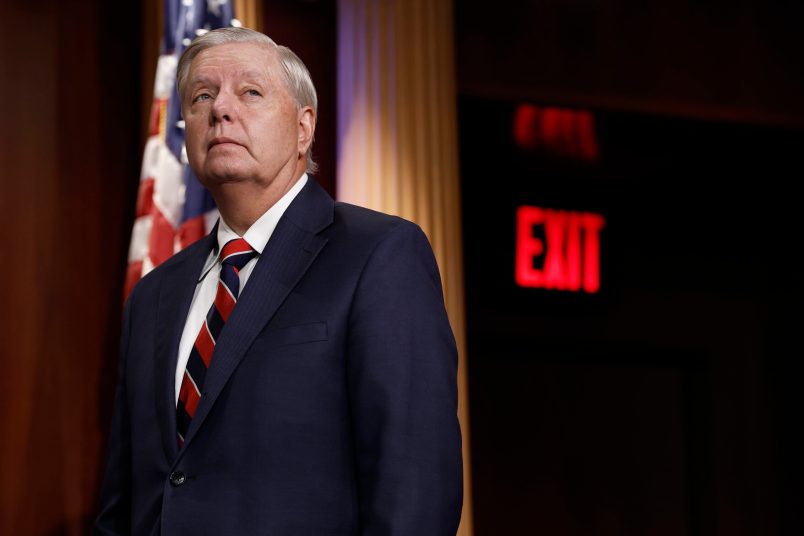Sen. Lindsey Graham (R-SC), the Republican ranking member on the Senate Judiciary Committee, on Wednesday noted that the Supreme Court justices need “to get their house in order,” all the while insisting that Congress needs “to stay out of the Court’s business.”
“The Supreme Court needs to get their house in order and I hope they will,” Graham said during a press conference, in which a group of GOP senators on the Senate Judiciary Committee spent around 20 minutes attacking Democrats for calling for a Supreme Court ethics reform.
“Two things can be true,” Graham added. “The court probably needs to address that issue. I think they do. I believe they will. And Congress needs to stay out of the courts business.”
Graham’s idea that the Court should self-police came in reaction to a bill mark up and vote the Senate Judiciary Committee, led by Chair Dick Durbin (D-IL), is scheduled to take up on Thursday. The committee will examine Sen. Sheldon Whitehouse’s (D-RI) Supreme Court Ethics, Recusal, and Transparency (SCERT) Act, a bill that would require Supreme Court justices to adopt a code of conduct, create a mechanism to investigate alleged violations to that code of conduct and other laws and improve transparency by practices like requiring the justices to explain their recusal decisions to the public.
The push for the SCERT Act comes amid a series of explosive ProPublica reports that focused, in particular, on the Court’s two most reliably conservative members. They revealed Justice Clarence Thomas accepted lavish trips and vacations for decades from major Republican donor and real estate developer Harlan Crow, and that Justice Samuel Alito went on a fishing trip to Alaska with influential billionaire Paul Singer, who later had business before the Court. ProPublica also revealed that Crow bought three properties that now belong to Thomas and his family. Thomas and Alito did not report their deals or vacations on financial disclosure forms.
Senate Republicans on Wednesday claimed that Congress can’t regulate the justices because the Supreme Court was established by the Constitution “as a separate branch of government.” Yet the Constitution actually explicitly gives Congress power to regulate the Court.
Over the years, Congress has passed legislation on matters related to the Court, the justices and the cases they hear — such as in 1964, when Congress voted for a significant pay raise for all federal judges, including Supreme Court justices.



